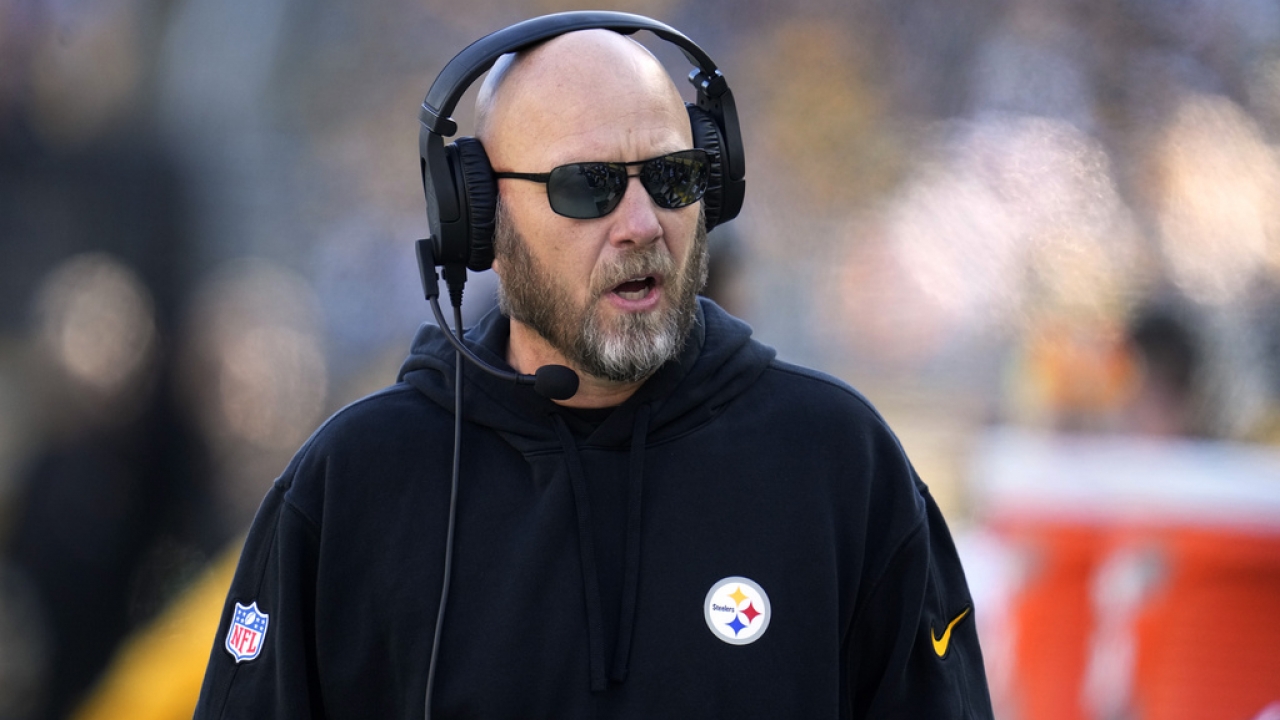Mike Tomlin kept waiting for the offense Matt Canada put together to show signs of life.
Signs of progress. Signs of the kind of dynamic play required to get where the franchise so desperately wants to go.
The signs never came. Not often enough or consistent enough anyway.
Not in 2021, when Canada and Ben Roethlisberger reached a frosty detente before squeaking into the playoffs. Not in 2022, when Mitch Trubisky and Kenny Pickett carried a game plan designed exclusively to minimize risk.
And certainly not this year, when the weeks passed and the progress Tomlin kept expecting to see never materialized amid a flurry of three-and-outs, field goals and narrow escapes largely orchestrated by the defense.
By Tuesday morning, Tomlin had seen enough, firing Canada in a nearly unprecedented in-season move for one of the most stable clubs in the NFL.
Pittsburgh hadn't made an in-season coaching change at the coordinator level or higher since going through three head coaches in 1941.
Tomlin felt as if he ran out of options with the Steelers (6-4) ranking near the bottom of the league in every statistical offensive category ahead of a trip to Cincinnati (5-5) on Sunday.
“This is a result-oriented business and to be short, the improvements were not rapid enough or consistent enough for us to proceed,” Tomlin said.
Pittsburgh is 28th in points and yards, and Pickett's development has stalled in a season in which Tomlin expected the 2022 first-round pick to “kill it.”
Pickett threw for just 106 yards in Sunday's 13-10 loss to Cleveland, including three straight incompletions on the Steelers' penultimate possession with the score tied. Pittsburgh punted and Cleveland rookie quarterback Dorian Thompson-Robinson guided the game-winning drive.
While Tomlin said in the aftermath on Sunday he wouldn't “second guess” any of the decision-making, less than 48 hours later he jettisoned Canada and opted to split his duties between running backs coach Eddie Faulkner and quarterbacks coach Mike Sullivan.
Faulkner will serve as the coordinator, with Sullivan — an offensive coordinator in Tampa Bay and with the New York Giants earlier in his career — serving as the play-caller.
Tomlin stressed he would not be “grading on a curve” and declined to think much beyond what awaits the Steelers on Sunday at Cincinnati.
“We’re getting ready to play a football game and win this week, that is the only agenda here,” Tomlin said. “[It's] not big picture and 2024 and all of that. This organization is not wired like that.”
Maybe, but the Steelers also aren't wired to take such drastic action during the season either.
This, however, felt different. Pittsburgh hasn't won a playoff game since 2016 and the offense has been stuck in some sort of stasis for years. The Steelers haven't been in the top half of the league in yards or points since 2018.
While Tomlin preached patience as Canada entered his third season, frustration outside the organization has been mounting for months.
“Fire Canada” has become an ubiquitous chant, even popping up during Pittsburgh Penguins home games and on homemade signs in the background on ESPN's popular ”College Gameday" broadcast.
The hashtag “#FireCanada” became a fixture on social media during Steelers games, with the vitriol often feeling oddly personal.
Tomlin has long grown accustomed to blocking out the outside noise. Recently, however, the volume has been raised internally.
In the past month, right tackle Chuks Okorafor lost his job for venting about the direction of the offense. Wide receivers George Pickens and Diontae Johnson have both publicly expressed their frustrations — be it verbally or with their body language or both — and on Sunday afternoon running back Najee Harris said he was simply “tired of this [stuff]" after the Steelers were outgained for a 10th straight game.
Tomlin declined to get into specifics about what the tipping point might have been, saying it came when he decided to make the change.
“I’m just not going to get into a lot of details and give you the pound of flesh that you’re hunting,” Tomlin said.
Pickett will remain the starter, though more will be expected going forward for a player who has a mere six touchdown passes on the season and just two since the calendar flipped to October, tangible evidence — or lack thereof — of an offense in search of an identity.
“We're still showing signs of September football in some instances,” Tomlin said. “You know, that's unacceptable. It's late November.”
The decision comes with the Steelers about ready to start a manageable stretch in their schedule. Each of their next five opponents — Joe Burrow-less Cincinnati (twice), New England, Arizona and Indianapolis — are currently at or below .500.
Pittsburgh likely needs simply a small uptick in production in its bid to return to the playoffs after narrowly missing out a year ago. The emergence of the run game last winter fueled a 7-2 push that helped Canada keep his job.
There was hope that better days were ahead this fall after a promising August that suggested the Steelers were ready to close the gap between themselves and the powers that be atop the AFC, teams such as Kansas City and Baltimore, clubs where the points can sometimes come easily.
Yet the optimism dimmed when the games began to count. Slow starts became the norm. Success came in small batches — typically at the end of games — and cohesion, consistency and explosive playmaking were elusive.
Tomlin moved Canada from the coach's box to the sideline three weeks ago, a decision that was met with immediate if modest success. Yet whatever progress they made was undone in Cleveland, when Canada's tumultuous tenure came to a predictably meek end.
It wasn't one thing that led to Tuesday. It was everything.
“It’s a myriad of variables," Tomlin said. “You just know when you're there.”







